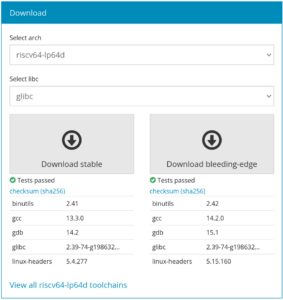 We just released version 2024.05 of the Bootlin toolchains, a set of 220 freely available pre-compiled cross-compilation toolchains, targeting a wide range of CPU architectures, with support for the 3 major C libraries used in the embedded Linux world: glibc, uClibc-ng and musl.
We just released version 2024.05 of the Bootlin toolchains, a set of 220 freely available pre-compiled cross-compilation toolchains, targeting a wide range of CPU architectures, with support for the 3 major C libraries used in the embedded Linux world: glibc, uClibc-ng and musl.
Buildroot support for STM32MP updated, STM32MP2 added
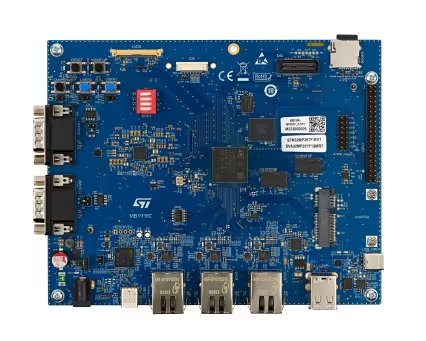 We are happy to announce a new release of our buildroot-external-st project, which is a Buildrooot add-on that allows to easily get started with STMicroelectronics STM32MP platforms using Buildroot. This new release openstlinux-6.1-buildroot-2024.02.3-mpu-v24.06.26 brings support for the new STM32MP2 platform, updated ST BSP components, updated Buildroot.
We are happy to announce a new release of our buildroot-external-st project, which is a Buildrooot add-on that allows to easily get started with STMicroelectronics STM32MP platforms using Buildroot. This new release openstlinux-6.1-buildroot-2024.02.3-mpu-v24.06.26 brings support for the new STM32MP2 platform, updated ST BSP components, updated Buildroot.
Continue reading “Buildroot support for STM32MP updated, STM32MP2 added”
OP-TEE support for Microchip SAMA5D2 processors
 Over the past few years, we have been contributing to the OP-TEE project the support for the Microchip SAMA5D2 processor family, and we also helped with enabling OP-TEE on the Microchip SAMA7 processor family.
Over the past few years, we have been contributing to the OP-TEE project the support for the Microchip SAMA5D2 processor family, and we also helped with enabling OP-TEE on the Microchip SAMA7 processor family.
In this blog post, we propose a quick introduction to OP-TEE and then detail a few changes that have been
done to add support for Microchip SAMA5 processors to the OP-TEE project.
Continue reading “OP-TEE support for Microchip SAMA5D2 processors”
Linux 6.10 released, Bootlin contributions inside
 Linux 6.10 was released last Sunday, following its now well-known release cadence. As usual, head over to LWN.net to have some good summary of the important features merged in this kernel release: part 1 and part 2.
Linux 6.10 was released last Sunday, following its now well-known release cadence. As usual, head over to LWN.net to have some good summary of the important features merged in this kernel release: part 1 and part 2.
LWN also published an article on statistics of the 6.10 release cycle, and Bootlin shows up in the most active employers by changed lines, with 7746 lines changed by Bootlin engineers. According to ths Kernel Patch Statistics site, we contributed 110 changes, putting us as the 19th contributing company (counting “Unknown” and “Hobbyists” as companies).
Also, in addition to the 110 patches we contributed, some of our engineers are also maintainers of different subsystems, and as such they review/merge patches contributed by others:
- Alexandre Belloni reviewed/merged 19 patches for the I3C and RTC subsystems which he maintains
- Grégory Clement reviewed/merged 14 patches for the Marvell ARM and ARM64 platforms that he maintains
- Miquèl Raynal reviewed/merged 12 patches for the MTD subsystem, which he co-maintains
Continue reading “Linux 6.10 released, Bootlin contributions inside”
Power over Ethernet (PoE) support into the official Linux Kernel
Introduction
Power over Ethernet (PoE) is a technology that combines power and data transmission over a single Ethernet cable. It simplifies the installation of networked devices like cameras, phones, and wireless access points by eliminating the need for separate power cables. PoE standards define how power is delivered alongside data, ensuring compatibility across devices. Originally denoted as “Power via MDI” (Media Dependent Interface) in the 802.3 IEEE standard, it later evolved into the recognized term “PoE” in the 2022 version of the standard. PoE equipment consists of two key components: Power Sourcing Equipment (PSE) and Powered Devices (PD).
Linux support, DENT initiative
Up until recently, the upstream Linux kernel had absolutely no support for Power over Ethernet technologies. Due to that, every hardware vendor providing PoE hardware was delivering its own vendor-specific and non-standard solution, often centered around not so great user-space libraries, with dubious integration with the rest of the Linux ecosystem and networking stack, like is unfortunately still done quite often by hardware vendors.
The DENT project, which exists under the umbrella of the Linux Foundation, aims at using the Linux Kernel, Switchdev, and other Linux based projects as the basis for building a new standardized network operating system without abstractions or overhead. Among other things supported by DENT is dentOS, a SwitchDev based NOS built on top of Open Network Linux, which includes PoE support, but based on yet another non-standard fully user-space driven solution in the name of poed, where even the HW-specific drivers are implemented in user-space.
So DENT set as a goal to implement a fully upstream solution in the Linux kernel to properly support Power over Ethernet, and contracted Bootlin to perform this development and upstreaming effort.
Continue reading “Power over Ethernet (PoE) support into the official Linux Kernel”
Zephyr: implementing a device driver for a sensor
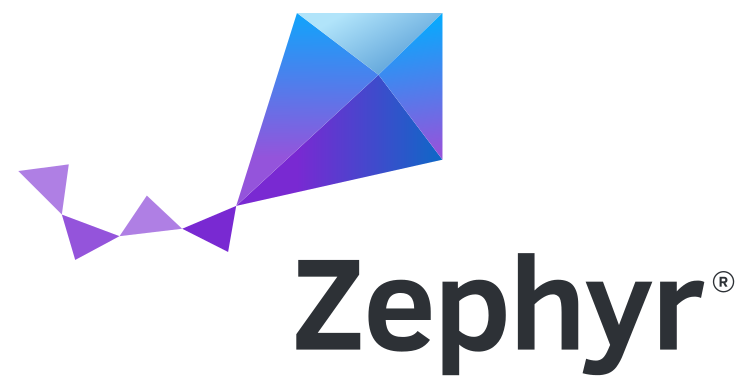 This post is our third blog post in our series about Zephyr. You can check our previous episodes: Getting started with Zephyr and Understanding Zephyr’s Blinky Sample. In this third blog post, we will see how to implement a device driver for Zephyr, from the configuration of the build system, the code of the driver itself, to contributing the driver upstream.
This post is our third blog post in our series about Zephyr. You can check our previous episodes: Getting started with Zephyr and Understanding Zephyr’s Blinky Sample. In this third blog post, we will see how to implement a device driver for Zephyr, from the configuration of the build system, the code of the driver itself, to contributing the driver upstream.
Continue reading “Zephyr: implementing a device driver for a sensor”
Bootlin at Open Source Summit Europe and Linux Plumbers in Vienna, Sep 16-20
On the week of September 16-20, Vienna is going the place to be for all open-source developers, with a large number of conferences taking place during this week. Being strong contributors to several key open-source projects, Bootlin will be strongly present at those conferences.
Open Source Summit Europe will take place on Sep 16-18, and its schedule has recently been published. This year, the Embedded Linux Conference part of this conference is unfortunately reduced to just 2 tracks of 2 days, but we nevertheless hope to see some interesting topics. Bootlin has contributed and will contribute to this event with:
- Bootlin CEO Thomas Petazzoni being a member of the Embedded Linux Conference program committee, he helped reviewing and choosing the talks for the event
- Bootlin engineer Théo Lebrun will give a talk on Linux Power Management Features, Their Relationships and Interactions on Sep 17 at 09:00 AM local
- Bootlin engineer João Marcos Costa will give a talk on Inspecting and Optimizing Memory Usage in Linux on Sep 17 at 02:00 PM local
In addition, no less than 12 Bootlin engineers will participate to this Open Source Summit Europe: Alexandre Belloni, Grégory Clement, Hervé Codina, João Marcos Costa, Kamel Bouhara, Louis Chauvet, Miquèl Raynal, Richard Genoud, Théo Lebrun, Thomas Petazzoni, Thomas Perrot and another engineer who will join our team just in time before the event to be part of the trip.
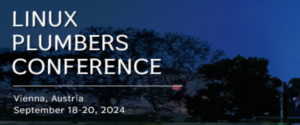 Right after the Open Source Summit, we will also be present at the Linux Plumbers conference. We have already submitted a few topics in various micro-conferences, and we’re hoping to see them accepted. Regardless of that, 8 engineers from our team will be attending Linux Plumbers: Hervé Codina, Louis Chauvet, Luca Ceresoli, Maxime Chevallier, Miquèl Raynal, Théo Lebrun, Thomas Petazzoni, Thomas Perrot.
Right after the Open Source Summit, we will also be present at the Linux Plumbers conference. We have already submitted a few topics in various micro-conferences, and we’re hoping to see them accepted. Regardless of that, 8 engineers from our team will be attending Linux Plumbers: Hervé Codina, Louis Chauvet, Luca Ceresoli, Maxime Chevallier, Miquèl Raynal, Théo Lebrun, Thomas Petazzoni, Thomas Perrot.
We look forward to meeting the community, presenting our projects and ideas and learning about the work done by others! See you all in Vienna in September!
Bootlin releases OpenWrt support for STM32MP1 platforms
 A few years ago, as part of its collaboration with ST, Bootlin developed and released buildroot-external-st, a project offering the integration of the support for ST’s STM32MP1 platform with the popular Buildroot build system, as an alternative to the Yocto Project offering provided directly by ST.
A few years ago, as part of its collaboration with ST, Bootlin developed and released buildroot-external-st, a project offering the integration of the support for ST’s STM32MP1 platform with the popular Buildroot build system, as an alternative to the Yocto Project offering provided directly by ST.
Today, Bootlin is happy to announce the openwrt-feed-st project, which in a similar way, provides integration of ST’s STM32MP1 platforms with the OpenWrt build system. This work was done by Bootlin’s OpenWrt expert Thomas Richard.
Continue reading “Bootlin releases OpenWrt support for STM32MP1 platforms”
Understanding Zephyr’s Blinky Sample
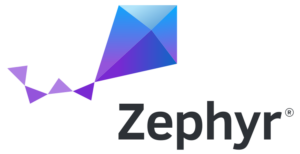 After our initial blog post on Zephyr in which we discovered how to download, build and flash Zephyr on two different boards, in this second blog post, we will dive into the code of Zephyr to understand how exactly the Blinky example works. To illustrate this, we will use the same boards as in our last blog post: an Arduino Nano 33 BLE, and a STM32L562E-DK.
After our initial blog post on Zephyr in which we discovered how to download, build and flash Zephyr on two different boards, in this second blog post, we will dive into the code of Zephyr to understand how exactly the Blinky example works. To illustrate this, we will use the same boards as in our last blog post: an Arduino Nano 33 BLE, and a STM32L562E-DK.
We will first look at how the example application determines which LED to blink and where it’s plugged in, and then we will look at the code responsible for blinking the LED.
Back from the Embededded Linux Conference: selection of talks #3
After a first and a second episode, our series of blog posts with our selection of talks we liked at the latest Embedded Linux Conference continues. Read on to discover the last 3 talks that we enjoyed and decided to summarize and highlight for you.
Continue reading “Back from the Embededded Linux Conference: selection of talks #3”

